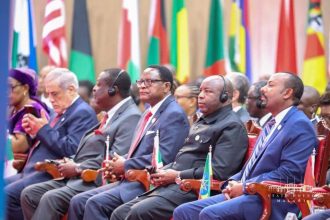ACB stops Nocma fuel supply deals
The Anti-Corruption Bureau (ACB) has suspended the controversy-riddled fuel supply contracts by National Oil Company of Malawi (Nocma) to pave the way for investigations into various alleged anomalies in the process.
The ACB’s intervention comes against a background of a bitter fight between the boards of Malawi Energy Regulation Authority (Mera) and management of Nocma.

In the thick of the controversy, Human Rights Defenders Coalition (HRDC) asked the ACB to investigate allegations of corruption and abuse of office in the ongoing procurement of fuel supply contracts by Nocma.
In a statement on Wednesday, ACB spokesperson Egrita Ndala confirmed that a restriction order had been placed on the procurement process.
Reads the statement: “Pursuant to its powers under Section 23(1) of the Corrupt Practices Act, on 8th June 2021, the Anti-Corruption Bureau [ACB] issued a restriction notice to Nocma on a contract to supply fuel under procurement number Nocma/ICB/Fuel/2020/2021.
“This follows several complaints received by the ACB alleging irregularities and suspected corruption surrounding the fuel procurement process. The ACB has instituted investigations into the matter.
“Following the restriction notice, Nocma is, therefore, restricted from awarding the contract until the ACB has concluded the investigation or lifted the restriction notice.”
Previously, Nocma deputy chief executive officer Hellen Buluma, then acting as CEO of the State-owned oil company, had also lodged a complaint to the graft-busting body alleging that some government officials, including presidential aides and Cabinet ministers, were trying to influence Nocma to include some suppliers on the list of the companies hired.
When contacted on Wednesday, Buluma refused to comment on the decision by ACB, asking for more time to review the restriction order.
“I will not comment. We have just received the news so we cannot comment now,” she said.
In a separate interview, HRDC chairperson Gift Trapence on Wednesday welcomed the suspension of the procurement process to pave the way for the investigation.
He said: “We are happy that ACB has stopped the process. As HRDC, we expect them to investigate the matter. We are interested in a fair process and we need value for money. We want to see adherence to the process where there is value for money.”
In its letter dated May 27 2021 to the ACB, HRDC argued that the awarding of contracts was shrouded by underhand dealings; allegations of selection of contracts with overpriced bids and asked for “an immediate, investigation on each step of the procurement process, including the bidding, evaluation, selection and awarding of contracts”.thorough and expedited
HRDC also called for a “thorough review of role of the boards of Mera, Nocma, government ministers, politicians and the oil suppliers in the process”.
The Nocma-Mera fight over fuel imports also attracted the attention of the Parliamentary Committee on Environment and Natural Resources which intervened and, after meeting both sides, passed a resolution mandating Nocma to proceed with the procurement.
Nocma is a State-owned company while Mera is a regulator of the energy industry.
In January this year, the Mera board declined to approve Nocma’s application to award contracts to suppliers it selected, citing concerns of overpricing.
Mera said the contracts were expensive and would cost the taxpayer K45 billion more due to the Delivered Duty Unpaid (DDU) procurement system used. The regulator also claimed that expensive suppliers such as Lake Oil for Northern Corridor and IPG on the Beira Corridor had allegedly quoted higher premiums than other bidders.
But Nocma argued that the DDU system—which mandates the seller to ensure that goods are safely delivered to destination and the buyer is responsible for import duties—reduces risks to the company.
Nocma further argued that Mera simply wanted its preferred suppliers to be selected and that it was acting under political influence.





